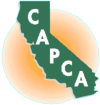UC Resources Available to Assist California through the Drought
by Doug Parker and Faith Kearns
California is in the midst of a historic drought (http://droughtmonitor.unl.edu/Home/StateDroughtMonitor.aspx?CA). The combination of three years of below-average precipitation, the driest year on record (2013), and a 15 year below-average precipitation trend have led the state to take unprecedented actions to limit water withdrawals and use. Because agriculture uses approximately 80% of developed water supplies, the drought is being felt particularly hard in that sector. Urban use accounts for about 20% of developed water supplies, and about half of that is for outdoor (primarily landscaping) purposes. As consumers become more aware of how much water is used for landscaping, they are increasingly interested in drought-tolerant landscaping. Therefore, the horticulture and landscaping sectors may face costs due to agricultural water restrictions, and benefits from increased demands for drought-tolerant landscaping. These costs and benefits will not be felt equally across the state or across the industry.
The University of California, Division of Agriculture and Natural Resources (ANR) has been helping producers and users of horticultural and landscaping materials increase water use efficiency and adapt to drought restrictions. Throughout California, ANR is an engine for problem solving. Serving as the bridge between local issues and the power of UC research, ANR has more than 300 campus-based specialists and county-based advisors working to bring practical, science-based answers to Californians.
Within ANR, the California Institute for Water Resources, CIWR, works with producers, consumers and stakeholders on water resource management. The Institute is enabled by the federal Water Resources Research Act (WRRA), with the mission of supporting research and extension activities that contribute to the efficient management of California’s water resources. Headquartered at ANR’s offices within the University of California’s Office of the President, CIWR is well positioned to coordinate research, education and extension activities across ANR, the 10 campuses of the UC system, as well as academic institutions across the state.
In early 2014, as it was clear the drought would be severe, CIWR developed a series of drought information and education webpages (http://ucanr.edu/drought). We began with a list of drought and water experts from across the state’s academic institutions. This experts list became a popular resource that quadrupled our web traffic (http://ciwr.ucanr.edu) and our Twitter following (@ucanrwater). In the last four months alone, over 400 articles in a variety of major media outlets including the New York Times, Washington Post, Time, BusinessWeek and Mother Jones have included interviews with California’s academic water and drought experts.
In addition, drought events ranging from seminars to workshops have been held across the state. Many of the early drought impacts were first felt by the communities that ANR serves, such as ranchers, farmers and the horticultural industry. As word of the drought spread beyond the agricultural community, workshops on drought response in the urban sector became in demand. Many of those programs have been captured on video that are available on the web, and we continue to develop and promote new programs on our drought webpages.
As the drought continues, we are gathering practical resources from across the UC system that have been of immediate use in agriculture, rangelands, and home and commercial landscape management. We have a wide variety of tools, including a virtual tour of California’s water system, developed by researchers throughout the UC system, and a series of drought and water- related scientific presentations known as “Insights: Water and Drought Online Seminar Series.” These CIWR drought resources are continually updated to provide the latest information and resources addressing the California drought.
Doug Parker is Director, UC California Institute for Water Resources and Leader, UC ANR Strategic Initiative for Water. Faith Kearns is Water Analyst, UC California Institute for Water Resources.












